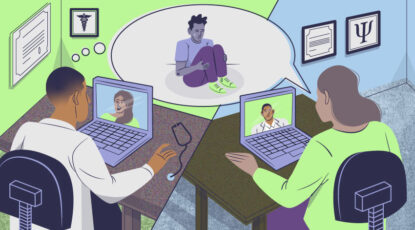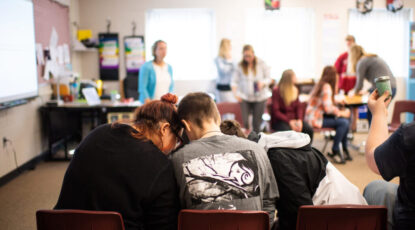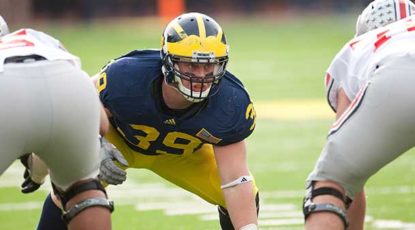-
What’s the dope on psychedelic science? Part 2
Vic Katch concludes his two-part series about the expanding field of scientific research into ‘psychedelics’ as medicine.
-
Mood Lifters: Think of it like ‘Weight Watchers’ for mental health
This proven and peer-led mental wellness program, created by a U-M scientist (and WW success story), seeks to help people who shun or can’t afford traditional therapy. Like the popular weight-loss program, it’s community-based, inexpensive, and — best of all — scaling up.
-
Neuroscientist Huda Akil wins National Medal of Science
The U-M neuroscientist is the eighth faculty member to receive the nation’s highest scientific honor. Her work contributes to the understanding of depression, anxiety, and addiction by delving into the genes, proteins, and cells that help govern human emotions and moods, and responses to pleasure and pain.
-
U-M offers lifeline amid crisis in youth mental health
The MC3 program links primary care providers to psychiatrists and behavioral specialists statewide who consult on the mental health needs of children, teens, and young adults to deliver essential interventions.
-
Two-thirds of parents cite barriers in recognizing youth depression
One in four parents say their child knows a peer with depression and one in 10 say a child’s peer has committed suicide, a new poll finds.
-
U-M takes mental health care to teens around the state
The U-M program TRAILS works with Michigan schools to provide effective mental health resources to students impacted by depression and anxiety. TRAILS is offered in 145 schools across the state.
-
Playing hurt
Author John U. Bacon, BA ’86/MA ’94, delivers a candid memoir that illuminates how late ESPN sportscaster and athlete John Saunders confronted depression.
-
A sign of strength, not weakness
For many student-athletes, sports can be exciting — and agonizing. Read a Q&A about U-M’s efforts to support our young athletes.
-
Mastering the mind
Pilot program succeeds in encouraging student-athletes to seek help for depression, anxiety, and other mental health conditions.










